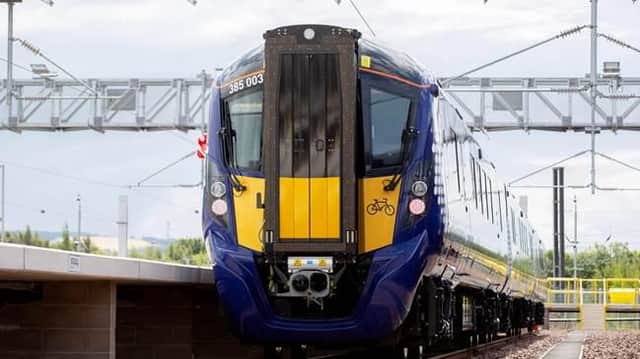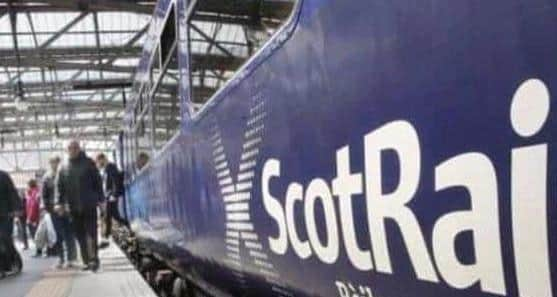Big questions over future of ScotRail as post-Covid shake-up looms - Alastair Dalton


Like me, you probably haven’t been on a train for months. But even if you used to commute by rail, you are in a small minority of Scots.
Yet the country’s railways have continued operating throughout the Covid crisis and ScotRail services are now running at 90 per cent of normal.
Advertisement
Hide AdAdvertisement
Hide AdNo staff have been laid off or furloughed, unlike in aviation, and rail improvement work that continued when most of the construction industry shut down led to it accounting for 25 per cent of all such activity across the UK.


Significant moment
But keeping Scotland’s trains running through the pandemic has come at a huge cost – on top of what was already the Scottish Government’s biggest contract.
Before the crisis, it was costing taxpayers £520 million to keep ScotRail and Caledonian Sleeper running this year.
Emergency support provided by ministers in April for six months because of a collapse in passenger numbers added £250m to the bill, effectively doubling the funding rate.
A further £103m announced last week is aimed at tiding things over until January, under what are effectively management contracts.
But what then?
The railways always seem to be in a state of flux but we appear to have reached a particularly significant moment, for two reasons.
The pandemic could permanently alter travel patterns, and the way that trains are managed is also about to go through its biggest shake-up in a quarter of a century.
Saturdays now busiest
Rush-hour commuting remains down by 80 per cent on previous levels.
Advertisement
Hide AdAdvertisement
Hide AdIt may recover to a degree, but as Network Rail chief executive Andrew Haines pointed out at Transport Times’ UK rail summit last week, many people have adjusted to working from home and will be enjoying the considerable financial benefit of not having to pay to travel to and from the office every day.
In the case of an Edinburgh-Glasgow season ticket, that’s £4,200 a year.
The fall-off in weekday commuting is on such a scale that Saturdays are now ScotRail’s busiest day, as The Scotsman revealed last week.
Meantime, how trains are run is about to change with the UK Government announcing on Monday it was scrapping franchises.
Although the Scottish Government is in charge of running the ScotRail and Caledonian Sleeper contracts, the system itself is still reserved to Westminster.
Scottish ministers will have to wait to see what will replace franchises, but have repeated their call to have this power devolved to Scotland.
This is a pressing need because Abellio’s contract to run ScotRail will end in 18 months’ time – three years early – following the failure last December to agree on the cost of running it up to 2025.
Advertisement
Hide AdAdvertisement
Hide AdThe Scottish Government wants the public sector to be allowed to bid to run the train operator – it has been a private-sector contest up to now.
We wait.
Best in class
However, among all this turmoil there are some positive signs.
ScotRail and Caledonian Sleeper have fully introduced brand new trains, and while the former’s have produced best-in-class performers from the start, the latter’s gremlins seem to be being banished, judging by the dearth of complaints I’ve had for a while.
Punctuality – albeit with far fewer passengers to cause delays – has reached impressive levels, with 96 per cent of ScotRail trains on time on Wednesday.
Now is the opportunity to build on these to create a better post-Covid railway.
A message from the Editor:
Thank you for reading this story on our website.
While I have your attention, I also have an important request to make of you.
The dramatic events of 2020 are having a major impact on many of our advertisers - and consequently the revenue we receive.
We are now more reliant than ever on you taking out a digital subscription to support our journalism.
Subscribe to scotsman.com and enjoy unlimited access to Scottish news and information online and on our app.
Visit https://www.scotsman.com/subscriptions now to sign up.
By supporting us, we are able to support you in providing trusted, fact-checked content for this website.
Joy Yates
Editorial Director
Comments
Want to join the conversation? Please or to comment on this article.